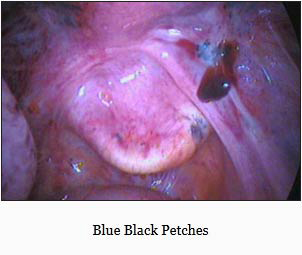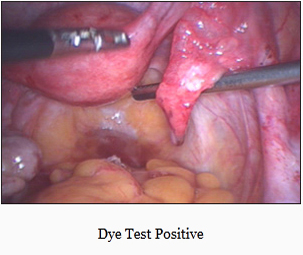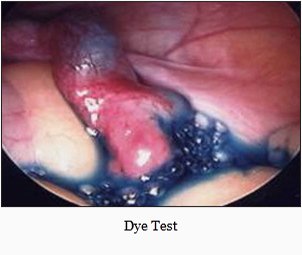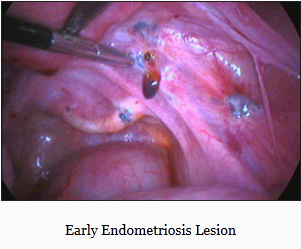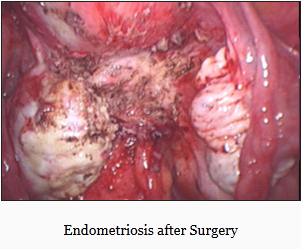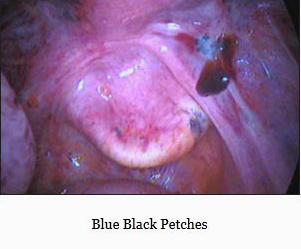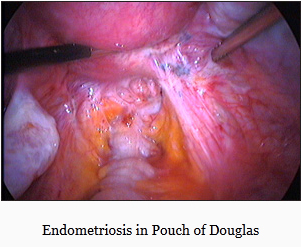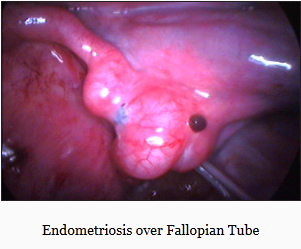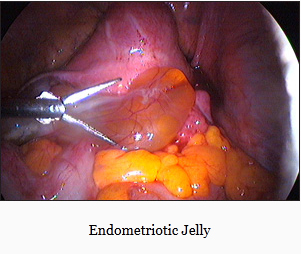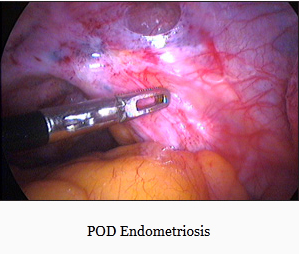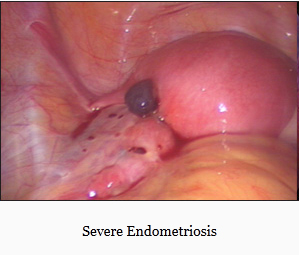Diagnostic Laparoscopy:

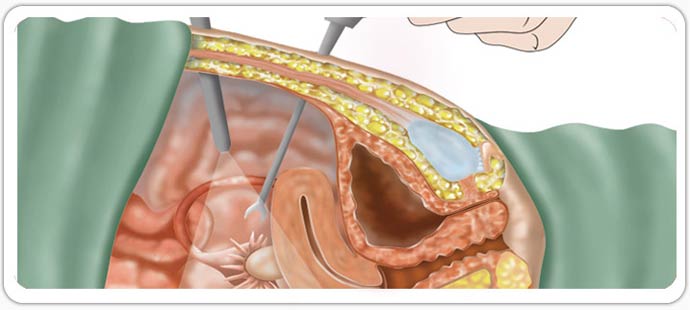

What is endometriosis?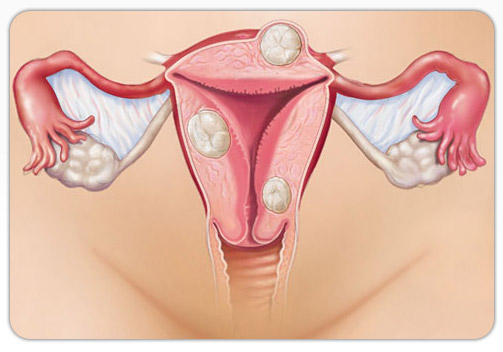
Endometriosis (say "en-doh-mee-tree-OH-sus") is a problem many women have during their childbearing years. It means that a type of tissue that lines your uterus is also growing outside your uterus. This does not always cause symptoms. And it usually isn't dangerous. But it can cause pain and other problems.
The clumps of tissue that grow outside your uterus are called implants. They usually grow on the ovaries, the fallopian tubes, the outer wall of the uterus, the intestines, or other organs in the belly. In rare cases they spread to areas beyond the belly.
How does endometriosis cause problems?
Your uterus is lined with a type of tissue called endometrium (say "en-doh-MEE-tree-um"). Each month, your body releases hormones that cause the endometrium to thicken and get ready for an egg. If you get pregnant, the fertilized egg attaches to the endometrium and starts to grow. If you do not get pregnant, the endometrium breaks down, and your body sheds it as blood. This is your menstrual period.
When you have endometriosis, the implants of tissue outside your uterus act just like the tissue lining your uterus. During your menstrual cycle, they get thicker, then break down and bleed. But the implants are outside your uterus, so the blood cannot flow out of your body. The implants can get irritated and painful. Sometimes they form scar tissue or fluid-filled sacs (cysts). Scar tissue may make it hard to get pregnant.
What causes endometriosis?
Experts don't know what causes endometrial tissue to grow outside your uterus. But they do know that the female hormone estrogen makes the problem worse. Women have high levels of estrogen during their childbearing years. It is during these years-usually from their teens into their 40s-that women have endometriosis. Estrogen levels drop when menstrual periods stop (menopause). Symptoms usually go away then.
What are the symptoms?
The most common symptoms are:
Endometriosis varies from woman to woman. Some women don't know that they have it until they go to see a doctor because they can't get pregnant or have a procedure for another problem. Some have mild cramping that they think is normal for them. In other women, the pain and bleeding are so bad that they aren't able to work or go to school.
Endometriosis - Symptoms
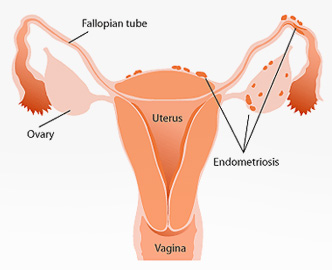 Some women with endometriosis don't have symptoms. Other women have symptoms that range from mild to severe. Symptoms may include:
Some women with endometriosis don't have symptoms. Other women have symptoms that range from mild to severe. Symptoms may include:
Symptoms are often most severe just before and during your menstrual period. They get better as your period is ending. Some women, especially teens, have pain all the time.
Several other conditions can cause symptoms that are similar to endometriosis. These conditions include painful periods,adenomyosis, and uterine fibroids.
Sexual activity
You can resume sexual activity one week after surgery. However, pregnancy can still occur during recovery. If you wish to prevent pregnancy, use a contraceptive.
